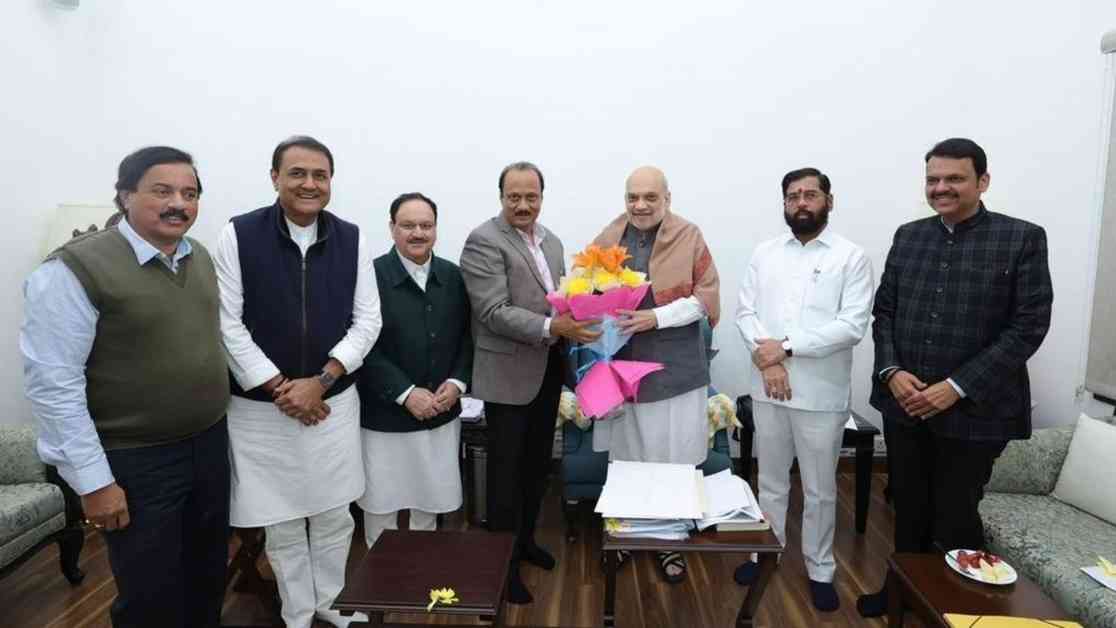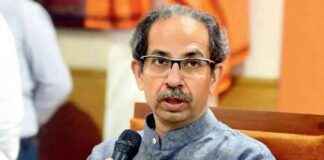Union home minister Amit Shah recently met with leaders from the BJP-led Mahayuti alliance in Maharashtra to discuss the power-sharing arrangement in the state. The meeting, which lasted for two hours and was held in Delhi, included Maharashtra caretaker chief minister Eknath Shinde, BJP leader Devendra Fadnavis, and NCP leader Ajit Pawar.
During the meeting, it was decided that the chief minister’s post would be held by the BJP, while two deputy chief ministers would be appointed, one from each ally, the Shiv Sena and the NCP. The BJP is expected to select its leader for the CM’s post on Saturday, with Devendra Fadnavis likely to retain the home portfolio if appointed. Finance is expected to go to the NCP, while the Sena is expected to receive UDD and PWD.
In terms of Cabinet berths, the BJP is expected to have the majority share with 22 berths, including the chief minister’s post. The Sena and NCP are expected to receive 12 and 9 Cabinet berths, respectively. Both the Shiv Sena and NCP have requested at least one berth each in the Union Cabinet, with the NCP pushing for senior leader Praful Patel’s inclusion.
Eknath Shinde, the current caretaker chief minister, may opt to give up the deputy CM post to focus on party expansion ahead of civic elections in Mumbai. The BJP’s decision on the next chief minister has sparked speculation, with former state BJP chief Chandrakant Patil hinting at a possible surprise choice, similar to decisions made in other states.
On the NCP side, Ajit Pawar emphasized unity within the alliance and stated that discussions on portfolio distribution would be amicable. The NCP is eyeing guardianship of districts like Pune and Raigad as part of the power-sharing arrangement.
Moving forward, the BJP is expected to send observers to Mumbai to gauge party MLAs’ views on the CM post. The new government is set to be sworn in on Monday or Tuesday. Eknath Shinde is planning a state-wide tour under the campaign ‘Bhau Aplya Bhetila’ to connect with constituents who benefited from the Ladki Bahin Yojana.
Overall, the power-sharing deal in Maharashtra reflects the intricate negotiations and considerations involved in forming a coalition government. The alliance’s ability to allocate portfolios and accommodate diverse interests will be crucial in ensuring a stable and effective administration.




















